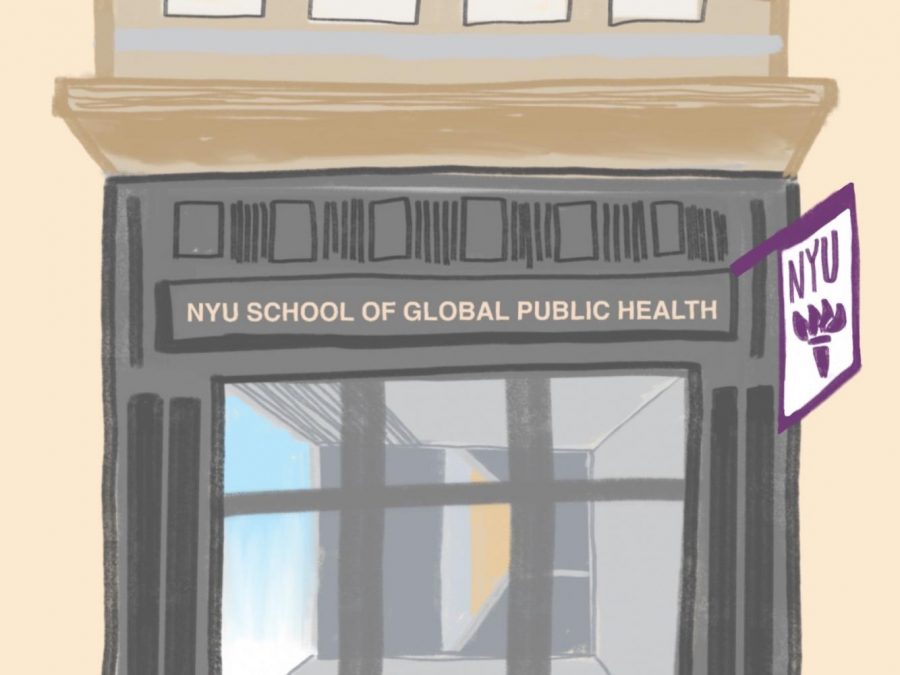NYU receives $2 million to study suicide prevention hotline
The National Institute of Mental Health awarded researchers at the university’s School of Global Public Health to study how suicide hotlines impact care.
(Illustration by Chelsea Li)
April 12, 2023
NYU’s School of Global Public Health received a $2 million grant from the National Institute of Mental Health to study the new suicide prevention hotline, 988. Researchers will study the impacts of individual state policies on the success of the hotline’s implementation and funding. In July of last year, 988 became the new national number for the Suicide Crisis Lifeline, replacing a standard-length phone number that had been in place since 2005.
The newly funded study is a part of NIMH’s plan to reduce suicide rates by 20% by 2025. The plan, titled Project 2025, was announced in 2019 and expects to save around 9,500 lives. The grant money will be given to NYU over the span of five years. Jonathan Purtle, an associate professor of public health policy and management at NYU and the leader of the project, said that the study comes during a time of high levels of public concern about suicide prevention.
“We hope our study will address some of these knowledge gaps and show if and how one specific legislative action — placing a small, flat fee on monthly cell phone bills to fund 988 implementation — affects outcomes such as emergency department use for mental health crises and suicide death,” Purtle said.
Purtle said that the study will consist of several steps, including mapping state finance policies, conducting surveys, interviewing suicide prevention stakeholders and comparing data from crisis centers from before and after the implementation of the 988 hotline. The study’s findings will also assess differences in outcomes across states based on how each funds the program.
According to the World Health Organization, anxiety and depression increased by 25% worldwide during the first year of the COVID-19 pandemic. Male suicide rates in the United States also increased by 4% from 2020 to 2021 following two years of decline in 2019 and 2020, according to the Centers for Disease Control and Prevention.
Ian Cero — a senior instructor at the University of Rochester Medical Center and a postdoctoral fellow of the Center for the Study and Prevention of Suicide — said that the 988 hotline is an important tool that can help make care more accessible to those who may be excluded from the healthcare system.
“Having resources that they can call 24/7 — if we can show that they’re effective or maybe find ways to make them more effective — would improve the clinical care that I already deliver,” Cero said.
According to Cero, emergency hotlines like 988, while important, are multifaceted, and the response that people get after reaching out to a hotline can impact their willingness to use the resource in the future.
“There is little precedent for something like 988, and it comes at a time when public and policymaker concern about mental health issues and suicide are extremely high,” Purtle said.
“Thus, many states are taking legislative action with the goal of maximizing the positive impacts of 988. However, there is virtually no evidence about how this can be achieved.”
Contact Ania Keenan at [email protected].




























































































































































